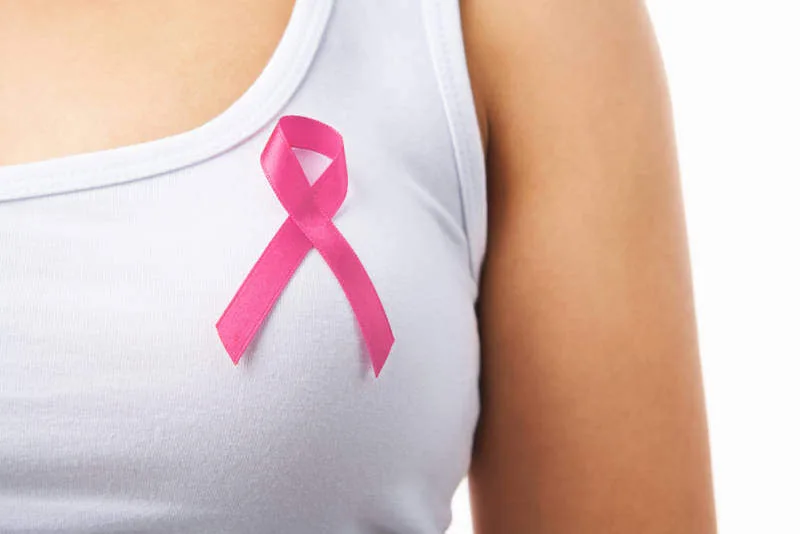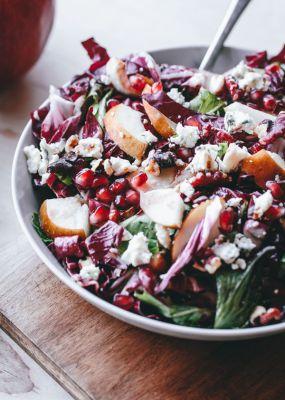It is thought that diet is partly responsible for approximately 30% to 40% of all cancers, however, diet alone is not likely to prevent cancer. There are other elements involved, such as genetics and environmental factors. So, findings have suggested that a healthy diet that includes physical exercise and maintaining a healthy weight can contribute to a decreased chance of developing the most common cancers found in women – breast cancer.
Breast Cancer: How Diet Can Play a Positive Health Role
Fact #1: Eat Your Veggies
According to research[1] certain vegetables have been linked to slightly lowering the risk of breast cancer. Studies have found that women who ate a greater amount of these vegetables were found to be protected against the disease. The vegetables that were listed were cruciferous and yellow vegetables such as cabbage, turnips, broccoli, cauliflower, squash, and pumpkin.
Fact #2: Go Crazy For Nuts
A study published in 2015[2] found that “the high consumption of peanuts, walnuts, or almonds significantly reduced the risk for breast cancer by 2–3 times. This protective effect was not found with low or moderate seed consumption when compared with null consumption.”
It is not recommended that humans over-indulge in nuts, as they are high in fat content. However, these can be combined with alternative options with anti-inflammatory effects like apples, berries, cruciferous vegetables, kelp, papaya, and turmeric.
Fact #3: Reduce Red Meat
When it comes to the consumption of red and processed meat, a 2020 study[3] suggests that “Red meat consumption may increase the risk of invasive breast cancer, whereas poultry consumption may be associated with reduced risk. Substituting poultry for red meat could reduce breast cancer risk.”
Fact #4: Enjoy Vitamin E
Vitamin E has been the subject of various studies. In 2022, a study found that vitamin E did not affect multiple cancers[4]. The study does state however that “further studies are warranted to validate such findings as well as to demonstrate causal associations across ancestries.” It wouldn’t hurt to include plant food that contains vitamin E in the diet. Beans, seeds, grains, and soy all contain vitamin E.
Fact #5: Fall in Love With Fibre
Fibre also plays a role in decreasing the risk of breast cancer. Research in 2020 from Harvard T.H. Chan School of Public Health[5] found that women who consumed high amounts of fibre were 8% less likely to develop breast cancer than those who consumed the least. This is likely because fibre is involved in decreasing the intestinal reabsorption of oestrogen and therefore lowering its circulating level.
Fact #6: Get Some Vitamin D
A 2023 study on vitamin D in the Journal of Clinical Oncology showed that people with a higher level of vitamin D in their bodies may be less prone to developing certain types of cancer[6]. However, this finding still needs to be researched further.
Fact #7: Pour Out The Alcohol
Alcohol and, more importantly, its metabolite acetaldehyde, are highly cancer-causing. The good news is that humans can metabolize both substances very effectively, so when consumed in moderation, the cancer-causing effect of alcohol is barely noticeable.
Wine in particular contains many bioactive substances known to decrease breast cancer risk and there is considerable evidence from in-vitro studies and observational studies, that moderate wine consumption as part of the “Mediterranean” diet and lifestyle may decrease breast cancer risk. [7]
Healthy living for a healthier you
Granted, we cannot prevent certain aspects of who we are as human beings, including factors such as ageing, menopause and family genetic history. Yet, a healthy diet that consists of foods rich in vitamins and minerals can assist in lowering the risk of developing breast cancer.
Not more so, however, than maintaining a healthy body weight and exercising regularly. These have proven to lower your risk of getting breast cancer and, if you have been afflicted, of suffering a recurrence of your cancer by one or two orders of magnitude more than any dietary change.
Bottom line
Living a healthy lifestyle today is important, particularly as breast cancer is a prevalent disease in women. By considering the above tips and arming yourself with knowledge, you are more likely to reduce your risk of developing the disease and, if you have suffered the disease, to reduce the risk of recurrence.
References
[1] https://doi.org/10.1002/ijc.31653 [2] https://pubmed.ncbi.nlm.nih.gov/26183374/ [3] https://pubmed.ncbi.nlm.nih.gov/31389007/ [4] https://doi.org/10.1186/s12916-022-02366-5 [5] https://www.hsph.harvard.edu/news/hsph-in-the-news/high-fiber-diet-linked-with-reduced-breast-cancer-risk/ [6] https://ascopubs.org/doi/10.1200/JCO.2023.41.16_suppl.10559 [7] Nutrients. 2019 Sep; 11(9): 2059. Published online 2019 Sep 2. doi: 10.3390/nu11092059Molecules. 2020 Aug; 25(15): 3531. Published online 2020 Aug 1. doi: 10.3390/molecules25153531
Eur J Nutr. 2021; 60(3): 1561–1586. Published online 2020 Aug 8. doi: 10.1007/s00394-020-02346-6





![women [longevity live]](https://longevitylive.com/wp-content/uploads/2020/01/photo-of-women-walking-down-the-street-1116984-100x100.jpg)










